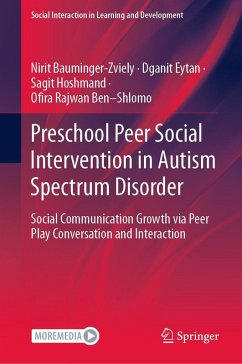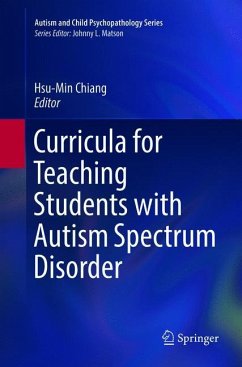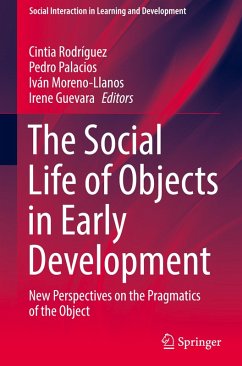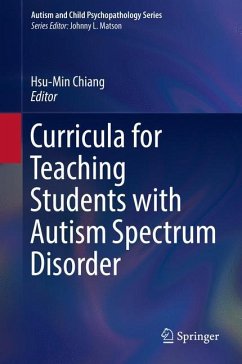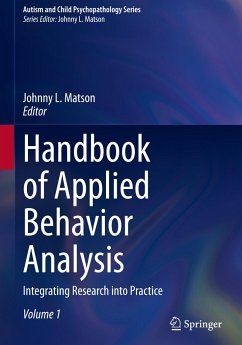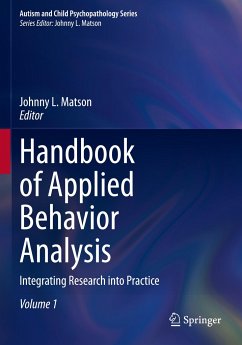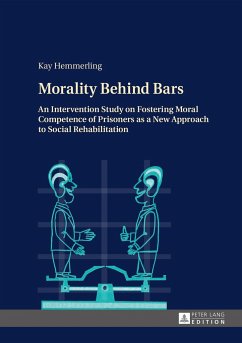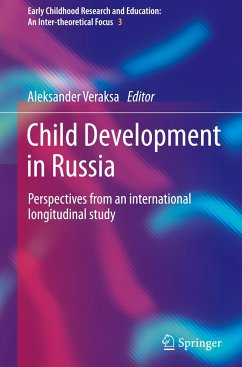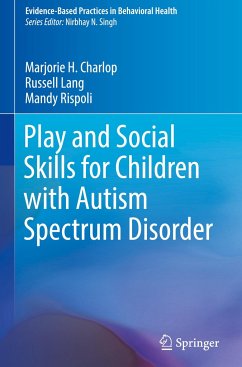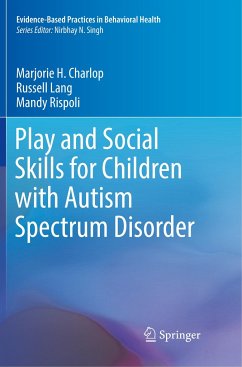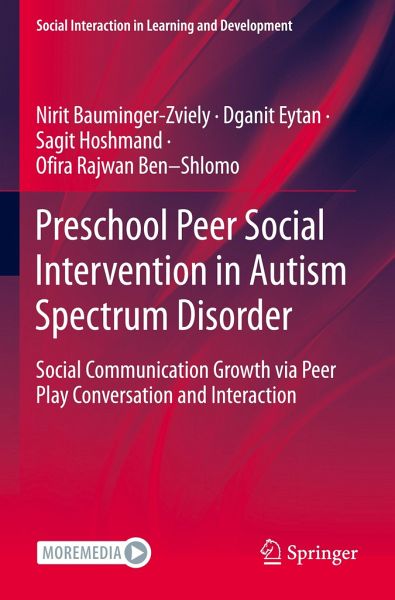
Preschool Peer Social Intervention in Autism Spectrum Disorder
Social Communication Growth via Peer Play Conversation and Interaction
Versandkostenfrei!
Versandfertig in 6-10 Tagen
91,99 €
inkl. MwSt.
Weitere Ausgaben:

PAYBACK Punkte
46 °P sammeln!
This book presents the Preschool Peer Social Intervention (PPSI), a manualized comprehensive social curriculum to enhance peer-interaction for pre-schoolers with Autism Spectrum Disorders (ASD) in three key domains: play, interaction, and conversation.The book outlines the PPSI's transactional approach in each of the three intervention domains and incorporates developmental features and age-appropriate play, interaction, and conversation skills while accounting for individual differences in social communication abilities. The intervention is designed to be implemented within the child's natura...
This book presents the Preschool Peer Social Intervention (PPSI), a manualized comprehensive social curriculum to enhance peer-interaction for pre-schoolers with Autism Spectrum Disorders (ASD) in three key domains: play, interaction, and conversation.
The book outlines the PPSI's transactional approach in each of the three intervention domains and incorporates developmental features and age-appropriate play, interaction, and conversation skills while accounting for individual differences in social communication abilities. The intervention is designed to be implemented within the child's natural social environment, such as preschool, and it includes the child's social agents, namely, their peers, teachers, and parents. PPSI intervention curricula addressed in this book are based on typical play, interaction, and conversation development, taking into account the social and communication challenges found to characterize young children with ASD in these domains.
Building up the ability to play, interact and converse more efficiently with peers may render a substantial impact on preschoolers with ASD, with vast potential for improving not only these children's immediate social experience with peers, but also their future social competence that relies on these early building blocks.
The book outlines the PPSI's transactional approach in each of the three intervention domains and incorporates developmental features and age-appropriate play, interaction, and conversation skills while accounting for individual differences in social communication abilities. The intervention is designed to be implemented within the child's natural social environment, such as preschool, and it includes the child's social agents, namely, their peers, teachers, and parents. PPSI intervention curricula addressed in this book are based on typical play, interaction, and conversation development, taking into account the social and communication challenges found to characterize young children with ASD in these domains.
Building up the ability to play, interact and converse more efficiently with peers may render a substantial impact on preschoolers with ASD, with vast potential for improving not only these children's immediate social experience with peers, but also their future social competence that relies on these early building blocks.



